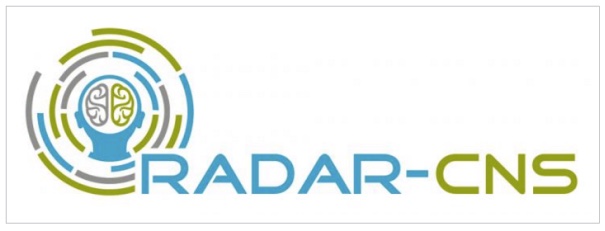European Program Aims to Develop Wearable Devices to Monitor and Treat MS

A major new European research program to develop ways of monitoring three main central nervous system diseases —multiple sclerosis (MS), depressive disorder, and epilepsy — using wearable devices and smartphones was launched on April 26. The RADAR-CNS (Remote assessment of disease and relapse Central Nervous System) project, supported by the Innovative Medicines Initiative (IMI), aims to improve people’s quality of life and potentially change how a range of chronic disorders are treated.

Smartphone and wearable device technology now enable a continuous remote assessment of patients, and provide a complete picture of real-time health status with levels of detail once unachievable. These mobile technologies also have the potential to initiate treatment before someone’s health deteriorates, preventing relapses or arresting progression before a patient recognizes the need to actively seek treatment.
 The RADAR-CNS program is jointly led by Kings College London and Janssen Pharmaceutica NV, which
The RADAR-CNS program is jointly led by Kings College London and Janssen Pharmaceutica NV, which  are being funded by the IMI, a public-private partnership established between the European Federation of Pharmaceutical Industries and Associations (EFPIA) and the European Union. The IMI includes 24 member organizations across Europe and the U.S., and the program brings together experts from a diversity of fields, including clinical research, engineering, computer science, information technology, data analytics, and health services.
are being funded by the IMI, a public-private partnership established between the European Federation of Pharmaceutical Industries and Associations (EFPIA) and the European Union. The IMI includes 24 member organizations across Europe and the U.S., and the program brings together experts from a diversity of fields, including clinical research, engineering, computer science, information technology, data analytics, and health services.
Epilepsy, depression, and MS are distinct disorders, with different causes and symptoms, but all can detrimentally affect quality of life and life expectancy. With all three disorders, patients may experience intervals during which their symptoms are manageable, interspersed with periods of deterioration and acute illness (relapse). Patient surveys repeatedly highlight the need to predict when relapses begin to set in to allow the timely administration of treatments.
The RADAR-CNS program’s co-leader, Matthew Hotopf, a professor of General Hospital Psychiatry at the Kings College London UK Institute of Psychiatry, Psychology & Neuroscience, said in a press release: “In recent years, the quality and quantity of data that we can collect using wearable devices and smartphones has exploded. It may be that this sort of data can improve clinical care simply by providing more accurate information. Better still, it may be possible to spot when a patient is getting into trouble before their clinic visit.
“For example, in depression, someone’s behaviour may change even before they have noticed they are struggling. Their sleep may get worse, or they may stop doing so much in the weeks leading up to a relapse. RADAR-CNS will exploit the huge potential of wearable technologies to improve the lives of the millions of people worldwide with chronic illnesses like epilepsy, depression and multiple sclerosis.”
A Horizon 2020 release noted that the RADAR-CNS proposal seeks to address/utilize two important aspects of central nervous system (CNS) diseases. First, most diseases are dynamic in nature, characterized by multiple reoccurrences and relapses, each of which tends to accelerate the downward spiral of underlying disease pathology.
 Second, the onset of reoccurrences, exacerbations, and relapses in these diseases cause changes in parameters related to sleep, physical activity, speech, cognition, social connectivity, and memory that can increasingly be measured remotely and passively via wearable biosensors and smartphones.
Second, the onset of reoccurrences, exacerbations, and relapses in these diseases cause changes in parameters related to sleep, physical activity, speech, cognition, social connectivity, and memory that can increasingly be measured remotely and passively via wearable biosensors and smartphones.
RADAR-CNS aims to reduce the cost and trauma to patients and caregivers, and reduce hospitalizations by predicting and pre-empting relapses and reoccurrences via use of remote assessment technologies. RADAR-CNS will focus initially on the three disease categories noted above, with the goal of using available clinical information and streaming data from on-body sensors to predict relapses, symptom exacerbations, and seizures.
The three disease categories were selected on criteria of unmet need in terms of prevalence, associated disability, feasibility of developing a remote biosignature predictive of a change in disease state, and the therapeutic interests of contributing EFPIA companies. Depression, MS and epilepsy are prevalent, disabling conditions affecting all age groups, and commonly characterized by rapid and distinct changes in disease states with time lines that, if predicted at onset and pre-empted, would result in significant improvement in overall patient outcomes. Moreover, depression and MS are often co-morbidities, offering opportunities to study both diseases in a common population.
The research will also be developed in a way that allows what is learned to be transferred to other diseases, potentially making the benefits of remote measurement technologies pervasive in medicine, and transforming the way we think about prevention and cure.
Findings in the contexts of sensor development, data management, analytics, privacy, and regulatory and healthcare policy issues can be applied to other diseases, with the program’s long-term objective being to build on what is learned and extend that knowledge to diseases such as bipolar disorder, Alzheimer’s, schizophrenia, and chronic pain.
The release explains that patients will be involved in RADAR-CNS from the start, helping identify the most important symptoms to target, and also to advise researchers on how best to implement remote measurement technologies in modes acceptable and engaging to patients, including privacy and security. Wherever possible, RADAR-CNS will use inexpensive and widely available technology, to keep its costs down.
Another RADAR-CNS program co-leader, Vaibhav Narayan, PhD, head of Integrated Solutions and Informatics, Neuroscience, Janssen Research & Development, an affiliate of Janssen Pharmaceutica, said: “Our goal is to improve clinical care and outcomes by using data generated by patients as they go about their daily lives to predict and pre-empt relapses and improve their quality of life. Such predictive medicine solutions will be backed by scientific evidence and will meet regulatory standards. At the same time, the privacy and security of patients and their care-givers will be fully protected.”
RADAR-CNS runs from 2016 until 2021. The project has received funding from the IMI Joint Undertaking under grant agreement No. 115902, which is supported by the European Union’s Horizon 2020 research and innovation program and EFPIA. See https://www.imi.europa.eu for more details. More information about RADAR-CNS is also available at the Horizon 2020 website. Contact information for people interested in participating in this program, plus a full list of organizations involved, can be found at the RADAR-CNS homepage.
Sources:
Kings College London
Horizon 2020
The Innovative Medicines Initiative






